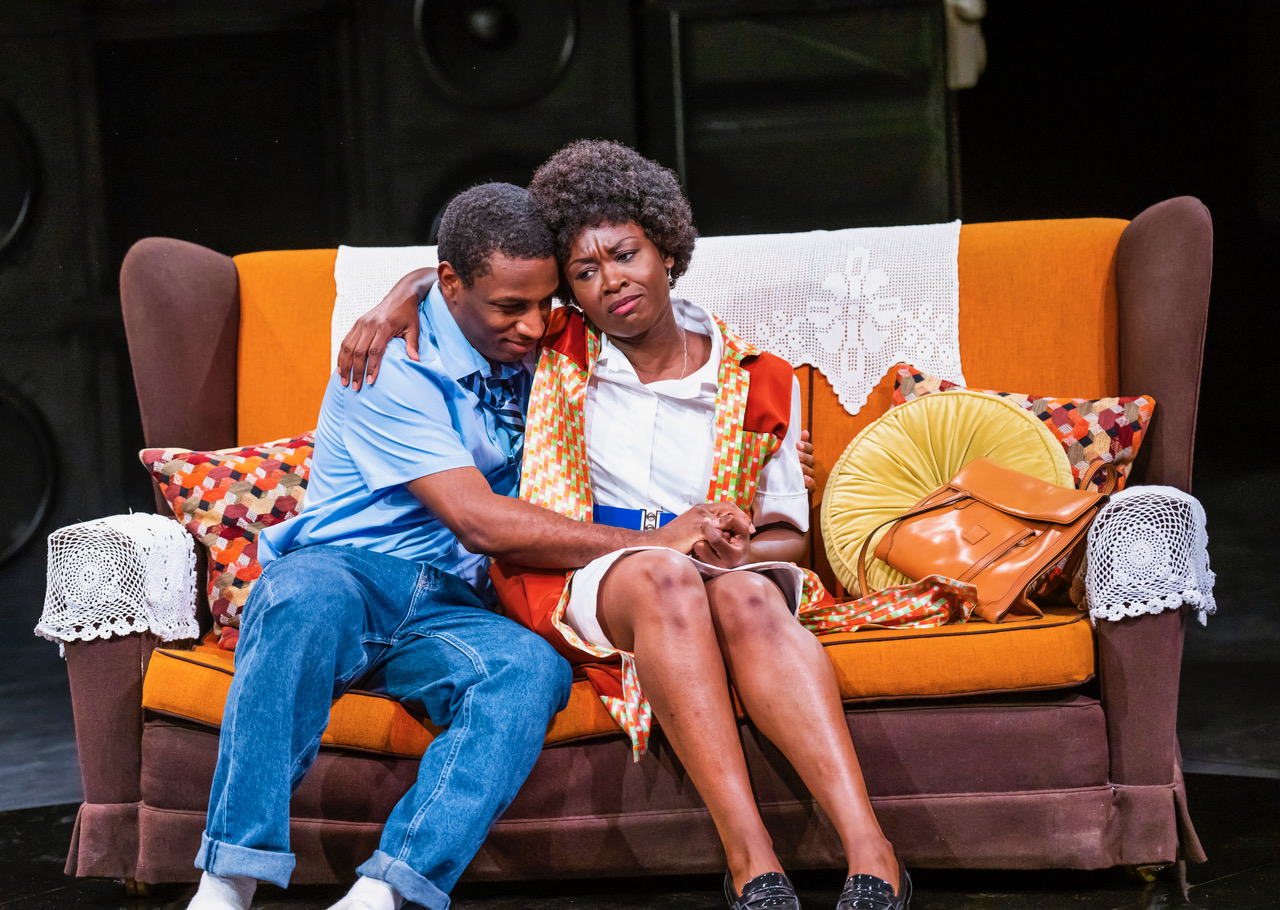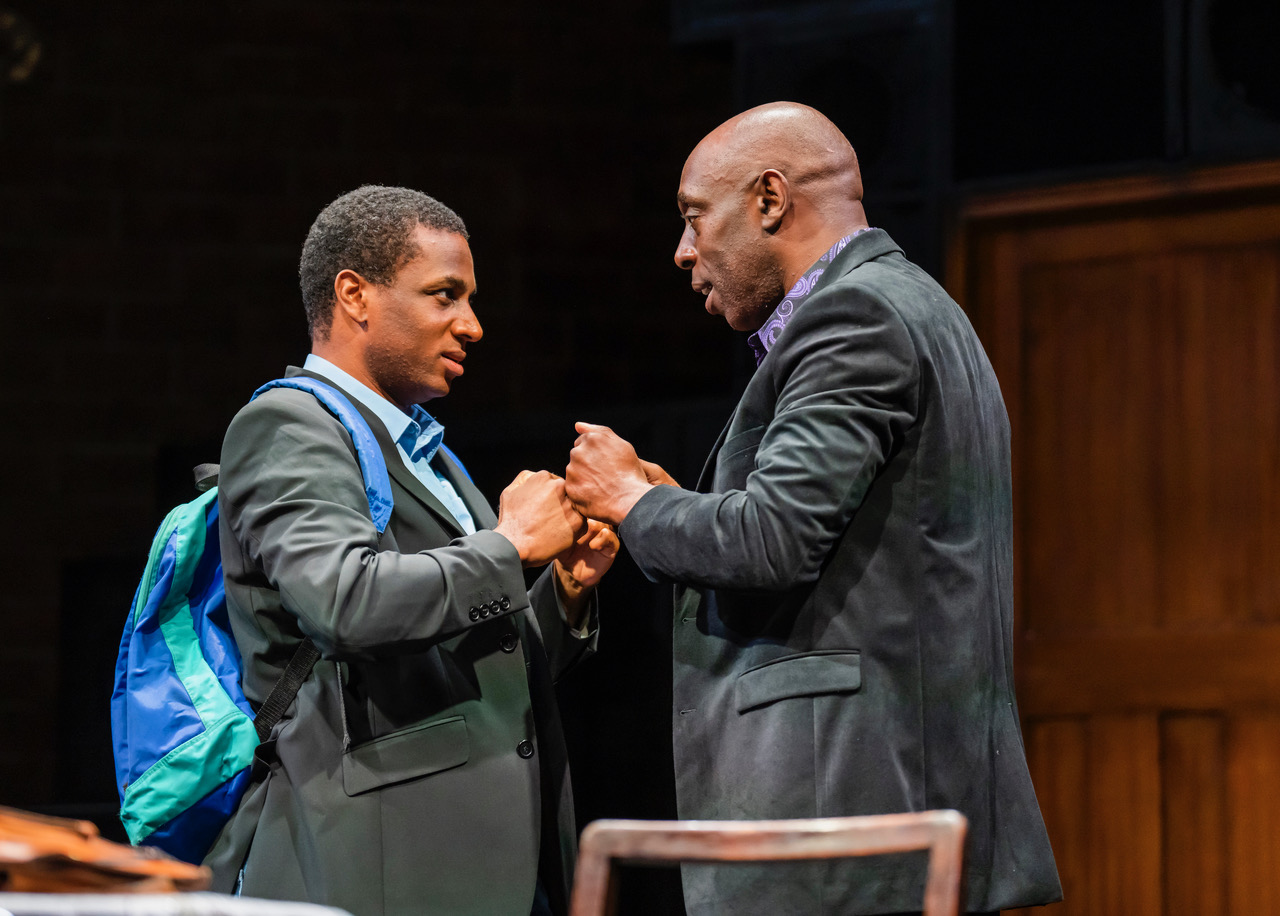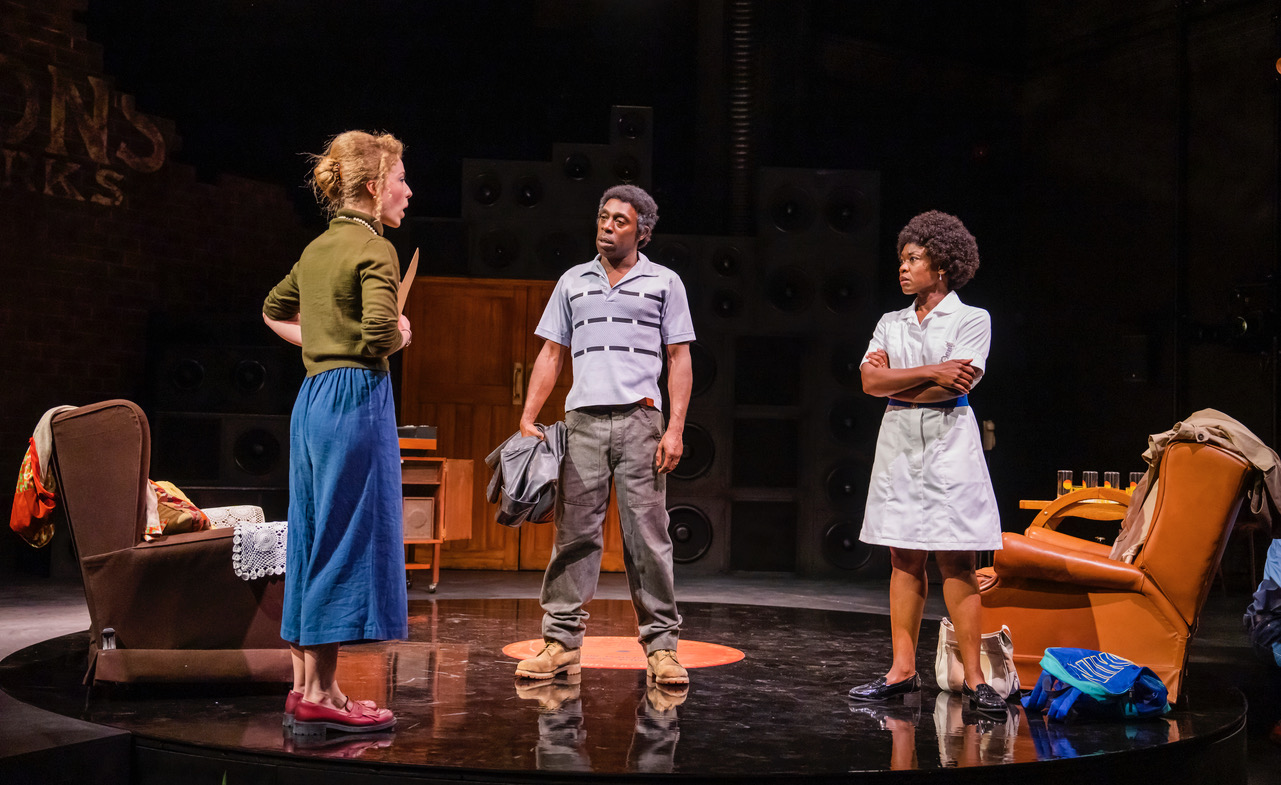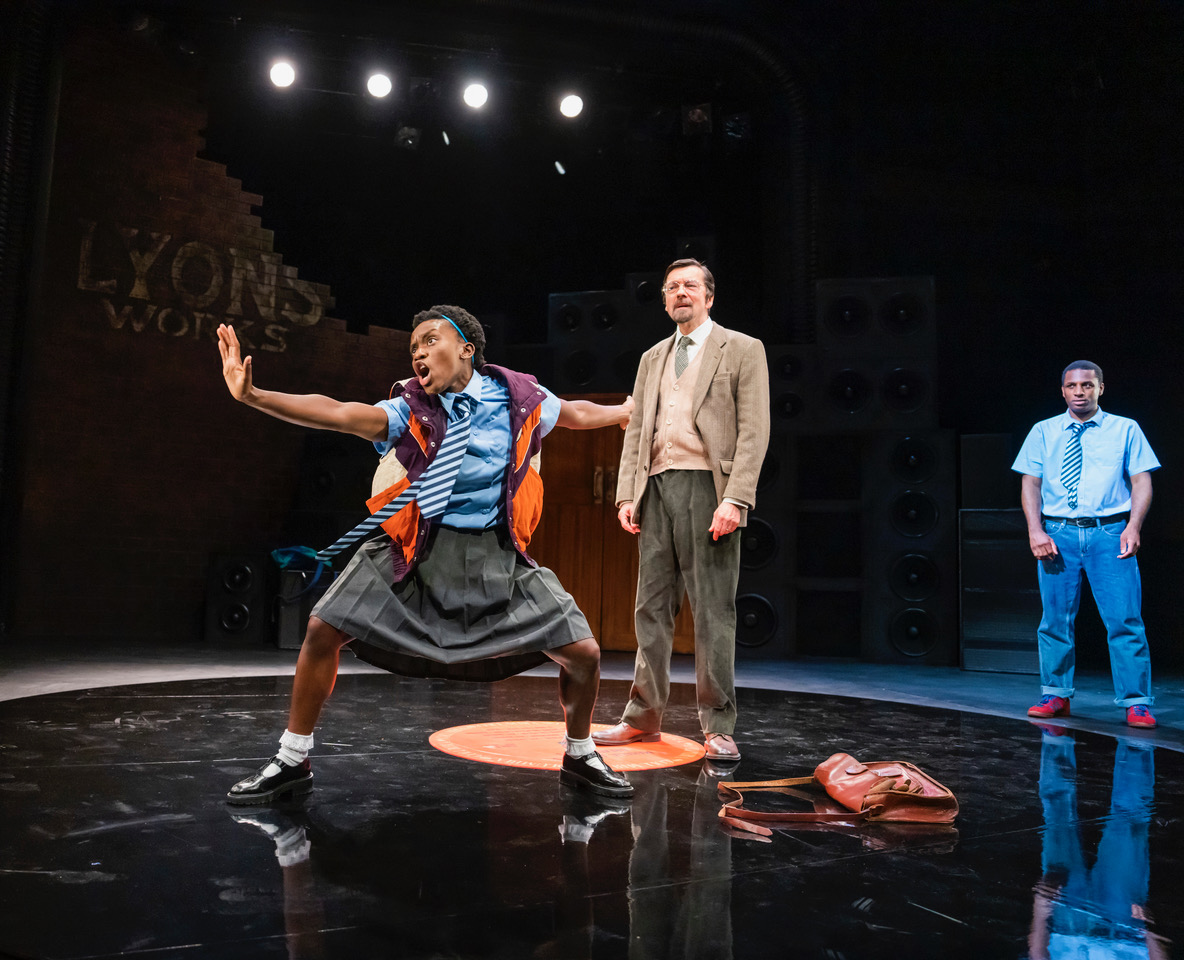
From the respectable setting of an iconic 80s Caribbean front living room, furnished with all the needs that external social settings would not allow, writer Zodwa Nyoni combines humour and wit to reveal the disturbing intolerance of professionals who contribute to the devastation a dignified family, caused by the unjust acts thrust upon them.
“its injection of comedy lightens the seriousness of the issues and provides a new perspective on a Black experience of the 80s”

The Darkest Part of the Night directed by Nancy Medina creates insight into how a family copes with the strains of non-acceptance in their own family and their external world, demonstrating the weight of responsibility to fight for balance when they are far outweighed by systems which support demise and destruction.
Performed on an oversized vinyl record, Mahalia Jackson’s Greatest Hits, the stage revolves allowing the story to move between the past and the present day; using well-known reggae, soul, and gospel tracks to alleviate the demands of daily life and requests its release through these rhythms.

The fragility of a black family’s life is explored against the backdrop of high levels of unemployment, protests, hyper-criminalisation, misdiagnosis and overmedication, alongside unnecessary intrusions from social services, and other abuses of power. This is contrasted with the present-day setting of a funeral signifying the resilience of a family structure that was tested by institutions showing how the very same structure provided stability and that strict measures supported its survival and successes of it.
The pressures of being black in Chapeltown, Leeds mount and relentlessly navigates their way through young Shirley and Dwight’s school and home life through to Leroy’s capacity to hold onto the pride he takes in being a dad and provider to his family and for the safety of his children. This is contrasted against the pride taken in the hilarious claims of having a highly desirable ‘Marks and Spencer’s designer handbag’ and gaining friendship through ‘sherbet lemons and a My Guy magazine.’

An enthralling performance is given by Nadia Williams who plays the roles of both Josephine, the mother, and the daughter in later life switching between the characters throughout the show. Quick moving, minded and mouthed young Shirley is played by Brianna Douglas who quite rightly challenges authority figures and delivers highly energetic and amusing outbursts as you would expect of a young person.
Understanding how extreme situations are minimalised and normalised is revealed through this riveting production, its injection of comedy lightens the seriousness of the issues and provides a new perspective on a Black experience of the 80s.





























